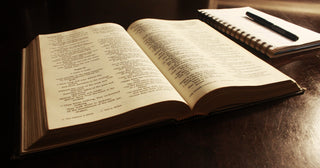The most critical days, the main definitions, the mandatory duties, and everything else we need to know about Lenten Season in an easy guide.

Lent is a great journey that prepares us physically and spiritually for the Glorious Mystery of Resurrection. Here is a short but complete guide to everything major we need to know about the Lenten season.
Most important days of Lent 2023
- Ash Wednesday (22 February 2023). Immediately after Shrove Tuesday, it marks the very beginning of Lent and the time for penance. Obligatory day of fasting.
- Lent Fridays. There are 5 of them, excluding Ash Friday. The abstinence from meat is mandatory.
- Holy Thursday (6 April 2023) commemorates the institution of the sacrament of Eucharist at the Last Supper. We enter the Sacred Triduum (see below).
- Sacred Triduum (7-9 April 2023):
- Good Friday (7 April 2023). It is the anniversary of the Crucifixion of Christ (we don’t go to Mass). Fasting, abstinence, or penitence is mandatory. Christians do the Stations of the Cross.
- Holy Saturday (8 April 2023) is the final day of Lenten fasting. We do not go to daily Mass, though Easter Vigil begins at sunset.
- Easter Sunday (9 April 2023). Lent is over, and a joyful time begins. It is the day of Jesus’ resurrection, the central Christian feast of the entire liturgical year.
Main definitions
- Fast (fasting). It means eating less food than usual. We are allowed to have one regular, full-sized meal and two smaller meals per day. About the fast, Pope Benedict XVI declared: “Denying material food, which nourishes our body, nurtures an interior disposition to listen to Christ and be fed by His saving word. Through fasting and praying, we allow Him to come and satisfy the deepest hunger that we experience in the depths of our being: the hunger and thirst for God.”
- Abstinence. It refers to the prohibition of eating meat on Fridays during Lent. However, we are allowed to eat fish and seafood.
- Almsgiving. It refers to the practice of donating personal belongings to the poor. We can give money and goods. About Almsgiving, Pope Benedict XVI wrote: “Almsgiving represents a specific way to assist those in need and, at the same time, an exercise in self-denial to free us from attachment to worldly goods […]. Almsgiving helps us overcome this constant temptation, teaching us to respond to our neighbor’s needs and to share with others whatever we possess through divine goodness.”
Obligatory duties for Catholic
- Fasting is our mandatory duty on Ash Wednesday and Good Friday.
- Abstinence. We must not eat meat on Lent Fridays.
- Confession. The Sacrament of Penance is a common penitential practice during the entire Lenten Season. Catholics are obliged to confess before receiving Holy Communion during the Easter season (from Easter Sunday to Pentecost).
Related articles:
The Great Lent unveiled in 5 basic facts →
3 basic facts about Ash Wednesday →










